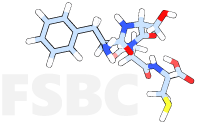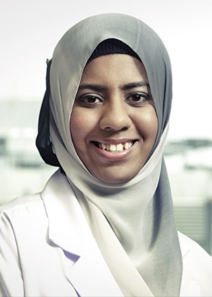Since November 2023 the IFIB has a new group leader - Dr. Nisha Mohd Rafiq. In the 5th floor she is working on the effects of mechanical influences on neurons and neurodegenerative diseases. We interviewed her about her path into science, her current work, her international experiences and more.
Q: How did you become interested in science and especially in cell and neurobiology?
A: I was more interested in physics, not biology. In high school, I took modules in physics and chemistry. But when I had an internship during high school, I realized that a lot of things can be applied to biology. So I decided to do a biology degree.
Then in college, I was lucky to have good mentors, get into a biophysics program and get the opportunity to go to London. And coincidentally, Singapore built the Mechanobiology Institute - literally just to merge physics and biology – I went there because it was perfect for me.
As a postdoc in the US, I accidentally ended up in neuroscience. My goal was to study membrane mechanobiology. But the lab I went to was a membrane and neuro lab and for some reason, I ended up liking neuro more than membrane research. So I studied neuroscience from scratch: I didn’t even know what a neuron looked like initially.
Q: Regarding your own research: Which discoveries are the foundation of your current work and what would you like to research next?
A: One of the hot stuff in neuroscience these days is the neurodegeneration of Alzheimer’s and Parkinson’s diseases. Typically, we study genes associated with these diseases. But 90% or 95% of cases in Alzheimer’s and Parkinson diseases are not genetic. The environment affects the brain cells and non-genetic factors like force, trauma and brain injuries can have an influence. Any non-genetic source that enters the cell can also affect the genes in an indirect way.
Our goal is to look at how non-genetic influences affect Alzheimer's and Parkinson’s diseases. And how we can fuse this research with genetic research in the field.
I’m very open to this whole topic because it‘s very new and still unfamiliar to research these things. I will start with the mechanobiology part, but I hope to diverge because there are so many other avenues you can take. For example, to investigate how the gut microbiome is involved.
Q: Apart from your working field, what recent discoveries and science have you surprised or fascinated the most?
A: One thing I really like is this structure called cilia. It’s a really short microtubule structure and is a protrusion from the cell body. The left-right asymmetry, the way your organs like the heart are placed is dependent on cilia in the early development. Also, all neurons have cilia and no one knows why. Cilia are often associated with cells that can divide. But neurons don't divide. However, cilia are also known to be involved in the removal of toxic metabolic products via fluid flow, e.g. during sleep. If you don't sleep well, you don't clear these toxic components. Not removing toxic products can lead to development of Alzheimer’s disease more easily.
Q: You did your education and studies at universities and labs all over the world in Singapore, the UK and the USA. What did you take from these experiences?
A: When I travelled, one of the first things I realized was that being good in English doesn't mean you are smart in science. There are a lot of brilliant people from different countries, who can speak in their own language, tackle the problems and just think in their own way.
Also, I found that science itself, the content, is independent of things like race and language. You can learn that same topic in different countries and languages, but you’re still talking about the same topic.
And I just learned that you can just get along with anyone in the world if you have a common interest in a topic.
I became very open. I don't judge much because I think people are forced to move and change and adapt to situations. This is hard sometimes and it’s only useful to be tolerant just as people are tolerant to you as well.
Q: Do you have any advice for young researchers just starting out?
A: I think young people are really smart these days. But if I can give some advice, I would say: do a lot of things related to AI and computational stuff. That's the future of biology because there is so much data to handle and analyse.
And what I wanted to tell my younger self as well: you don't necessarily need to be in academia in a linear path. There are so many exciting scientific things to do and especially in industry you can have an impact on society with your work.
Do something interdisciplinary as well because then you will find new pathways and new ideas.
Q: In the End: could you briefly introduce yourself to our readers?
A: I'm Nisha Mohd Rafiq. I'm Singaporean. I'm just your average person. I'm also a scientist who likes studying neurodegenerative diseases. I like music as well, hiking, mountains and things like that.

